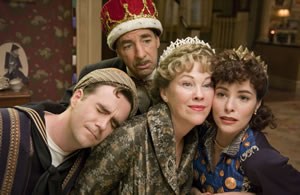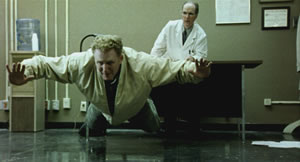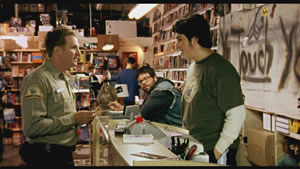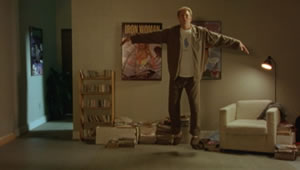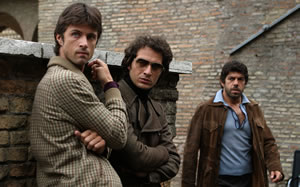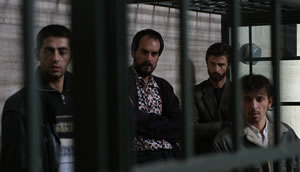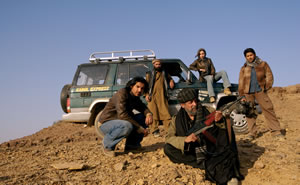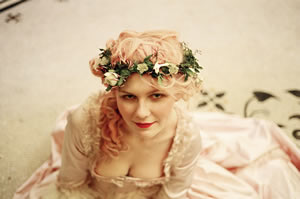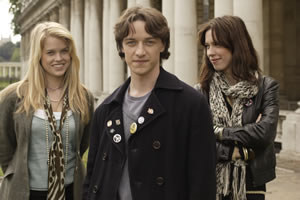Little Children
Cast: Kate Winslet, Jennifer Connelly, Patrick Wilson, Jackie Earle Haley
The problem with the suburbs is they aren't real. That's not to say they don't exist, Australia, the USA and our own home counties are covered with them, in all their WASPy glory. They are not real because they are created with this image of normality and safety, where there is a specific, yet often unspoken, code of conduct. The truth is the suburbs are homes to drones and wage slaves, to people forced to conform, to people who don't like free-thinkers or people who dare to be different. And heaven help anyone who doesn't fit into their view of the world. But, as anyone who has seen a David Lynch film will tell you, appearances are deceptive. Essentially, that is what Little Children is about.
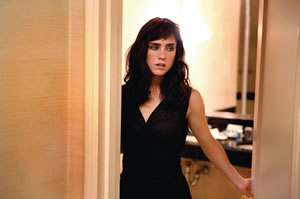
Based on the novel of the same name by Tom Perrotta, who co-wrote the screenplay with the director, the film is a witty, and sometimes shocking, look at middle-class American suburbia. Sarah (Kate Winslet) is married to a branding (not advertising) executive and has a comfortable existence. She is the mother of a young girl, and they spend their days at the park with other mums and children, except they don't really fit in with them. One day Brad (Patrick Wilson), a handsome househusband married to a beautiful filmmaker (Jennifer Connelly), comes to the park with his son. The other women call him "The Prom King", and have their own long-distance fantasies about him but, as part of a dare, Sarah goes and talks to him, then in order to shock the prissy mums, kisses him. And they develop an illicit relationship. This is one of the film's threads.

The other involves a convicted sex offender, Ronny (Jackie Earle Haley) who exposed himself to a young child. After being released from prison he goes back to stay with his elderly mother, and becomes the target of a hate campaign led by an ex-cop, Larry (Noah Emmerich).
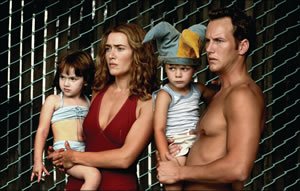
The story is about outsiders trying to fit into a society that is both judgemental and hypocritical, and failing. It is about fulfilling desires and longing for freedom, all within the stifling confines of suburban streets, children's playgrounds and public swimming pools.
This may sound a bit boring and highbrow, like a lot of domestic dramas, such as Ordinary People or The Ice Storm, but it is elevated by a fantastic script that is witty and well-observed. It handles the issues of infidelity and ostracization sympathetically, and at times shockingly, neither condoning nor condemning the actions. What really sets the movie apart, though, is the acting from the little-known cast, Winslet and Connelly excepted. All the performances are natural and never overplayed. It could easily fall into melodrama, but the director and the actors managed to rein in the performances, even in the more traumatic scenes.
At 137 minutes the film does feel a bit long at times, but the impending doom the director develops in the build-up to the final climax more than compensates for that. It's one of those films that sticks in your mind well after the show has finished, not because it is particularly shocking but because it is so well done.
Little Children is on general release from November 3.
